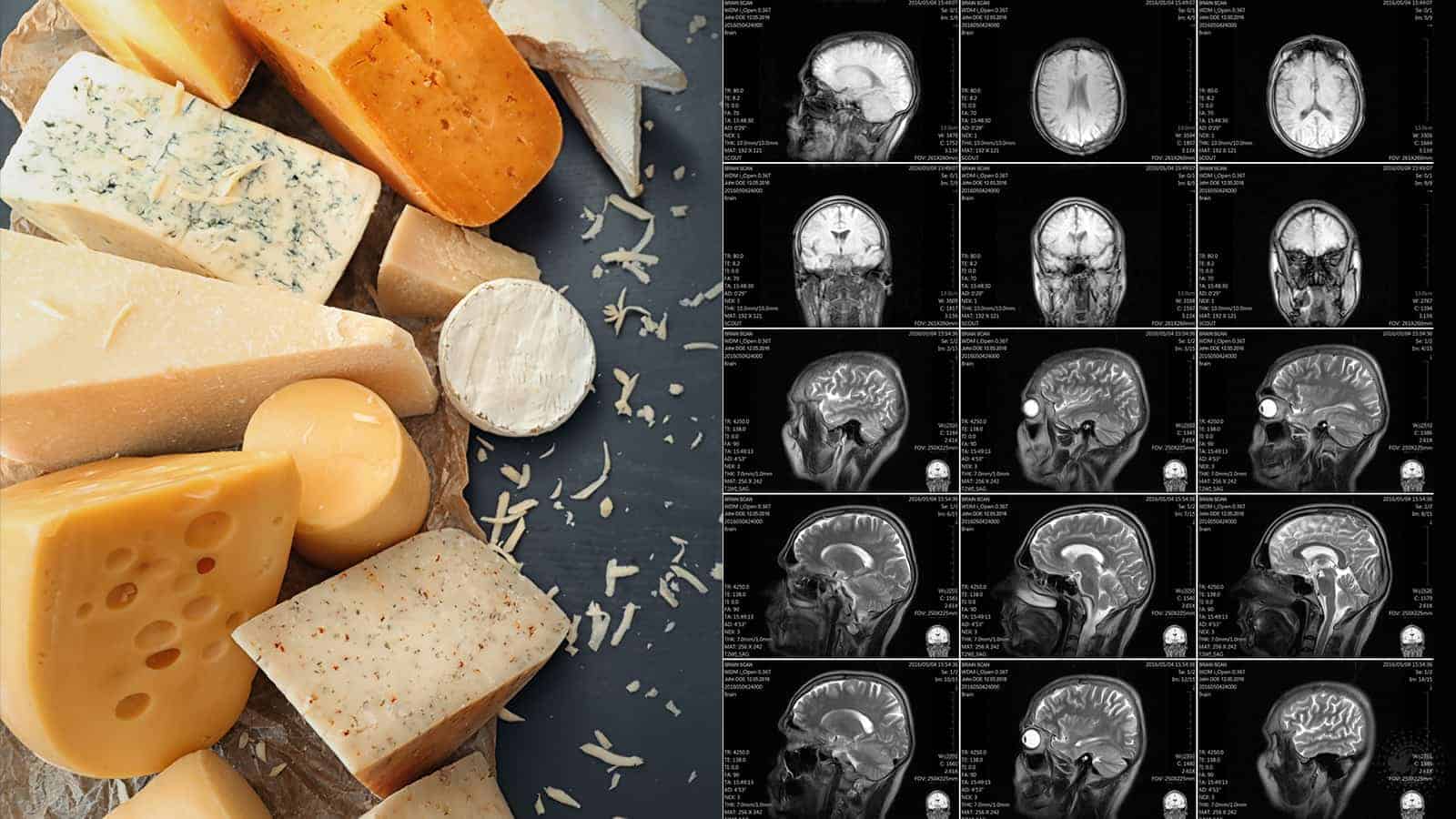According to new findings by Iowa State University researchers, eating cheese may protect against age-related neurodegenerative diseases later in life. They also discovered that red wine helped improve cognitive functioning.
The November 2020 issue of the Journal of Alzheimer’s Disease published this groundbreaking research.
Auriel Willette, an assistant professor in Food Science and Human Nutrition at Iowa State, led the research. Brandon Klinedinst, a Neuroscience Ph.D. candidate, working in the Food Science and Human Nutrition Department, collaborated on the study. The research leads to large-scale analyses that link specific foods to better cognitive functioning later in life. The research team gathered data from 1,787 older adults in the UK (aged 46-77, at the end of the study).
They collected the data through the UK Biobank, a large-scale biomedical database and research resource. It contains in-depth genetic and health information from 500,000 UK participants. Approved researchers worldwide researching both common and deadly diseases can access the database.
The participants completed a touchscreen questionnaire called a Fluid Intelligence Test (FIT) at baseline for the study. This data was collected between 2006 and 2010. They also took part in two subsequent assessments conducted from 2012-13 and 2015-16. The FIT questionnaire gives the researchers an idea of a person’s mental keenness.
Eating habits that the team assessed
 The research team also asked participants questions about their food and alcohol intake at baseline and two follow-up sessions. The Food Frequency Questionnaire asked participants about their consumption of various foods, which included the following:
The research team also asked participants questions about their food and alcohol intake at baseline and two follow-up sessions. The Food Frequency Questionnaire asked participants about their consumption of various foods, which included the following:
- fresh fruit
- dried fruit
- raw vegetables and salads
- cooked vegetables
- oily fish and lean fish
- processed meat
- poultry
- beef
- lamb
- pork
- cheese
- bread
- cereal
- tea and coffee
- beer and cider
- red wine and white wine
- champagne and liquor
Here are four of the main takeaways from the study:
- More than all other foods, researchers found that cheese protected against age-related cognitive decline, even in the elderly.
- Daily consumption of alcohol, specifically red wine, improved cognitive function.
- Eating lamb each week, but not other types of red meat improved cognitive ability in the long-term.
- Most people know that eating too much salt can cause health issues. Individuals already predisposed to Alzheimer’s should watch salt intake to lower the risk of developing cognitive problems.
“I was pleasantly surprised that our results suggest that responsibly eating cheese and drinking red wine daily are not just good for helping us cope with our current COVID-19 pandemic, but perhaps also dealing with an increasingly complex world that never seems to slow down,” Willette said. “While we took into account whether this was just due to what well-off people eat and drink, randomized clinical trials are needed to determine if making easy changes in our diet could help our brains in significant ways.”
Klinedinst added, “Depending on the genetic factors you carry. Some individuals seem to be more protected from the effects of Alzheimer’s, while others seem to be at greater risk. That said, I believe the right food choices can prevent the disease and cognitive decline altogether. Perhaps the silver bullet we’re looking for is upgrading how we eat. Knowing what that entails contributes to a better understanding of Alzheimer’s and put this disease in a reverse trajectory.”
Other benefits of eating cheese regularly–and why you should pair it with a glass of red wine
Here are other compelling reasons to add a little more cheese to your diet.
- can protect against cavities
- contains high amounts of Omega-3 fatty acids and vitamin K2, which helps coagulate blood
- contains calcium and protein, which help build strong bones and muscles
- lowers inflammation due to conjugated linoleic acid (CLA), which may also prevent heart disease and obesity
- lowers blood pressure due to the high calcium levels
- contains glutathione, an antioxidant that boosts brain health
- protects blood vessels
- improves gut bacteria
The primary benefits of drinking red wine
Grabbing a glass of red wine as the study suggests? Here are some potential benefits.
- lowers the risk of heart disease, stroke, and early death
- reduces the risk of cancer
- lowers the risk of depression
- improves insulin sensitivity
- reduces the risk of type 2 diabetes in women
- contains high antioxidant levels
- lowers bad cholesterol
Both cheese and red wine have been shown to decrease the risk of cognitive disease. Below, we’ll go over a few more ways to protect against Alzheimer’s, dementia, and other neurodegenerative illnesses.
Lowering the risk of Alzheimer’s and other cognitive diseases
According to the Alzheimer’s Association, here are a few preventative measures you can take:
1. Make sure to get regular exercise.
Get regular cardiovascular exercise that elevates your heart rate and increases blood flow to the brain and body. Scienctists note a link between physical activity and lowered risk of cognitive decline, according to the National Institue on Aging.
2. Eat a diet low in sugar and high in heart-healthy fats.
The DASH diet and Mediterranean diet, in particular, have been shown to lower the risk of Alzheimer’s.
The DASH diet includes vegetables, fruits, fat-free or low-fat dairy products, whole grains, fish, poultry, beans, seeds, nuts, and vegetable oils. It also advises limiting sodium, desserts, sugary beverages, and red meats.
A Mediterranean diet includes low amounts of red meat. It emphasizes whole grains, fruits and vegetables, fish and shellfish, and healthy fats like nuts and olive oil.
3. Get enough sleep.
Sleep deprivation can cause problems with memory and thought processing in the long-term.
4. Keep your brain active.
Doing crossword puzzles and brain games, building something, or even reading a book will stimulate your brain.
5. Maintain social connections.
Some studies have shown that keeping socially active may protect your brain. Experts at the National Institute on Aging believe that socializing helps strengthen connections between nerve cells in the brain.
 Final thoughts: eating cheese and drinking red wine can help prevent cognitive decline
Final thoughts: eating cheese and drinking red wine can help prevent cognitive decline
In a groundbreaking study, Iowa State University scientists proved that cheese and red wine could impact cognitive acuity. Among all the foods in the questionnaire, cheese seemed to protect against age-related cognitive decline the most. This research will hopefully lead to other studies about the exact mechanisms behind why cheese improves brain functioning.
So if you don’t already eat cheese, you may want to reconsider long-term brain health. Of course, you should always choose humane, grass-fed, and organic whenever possible.


















